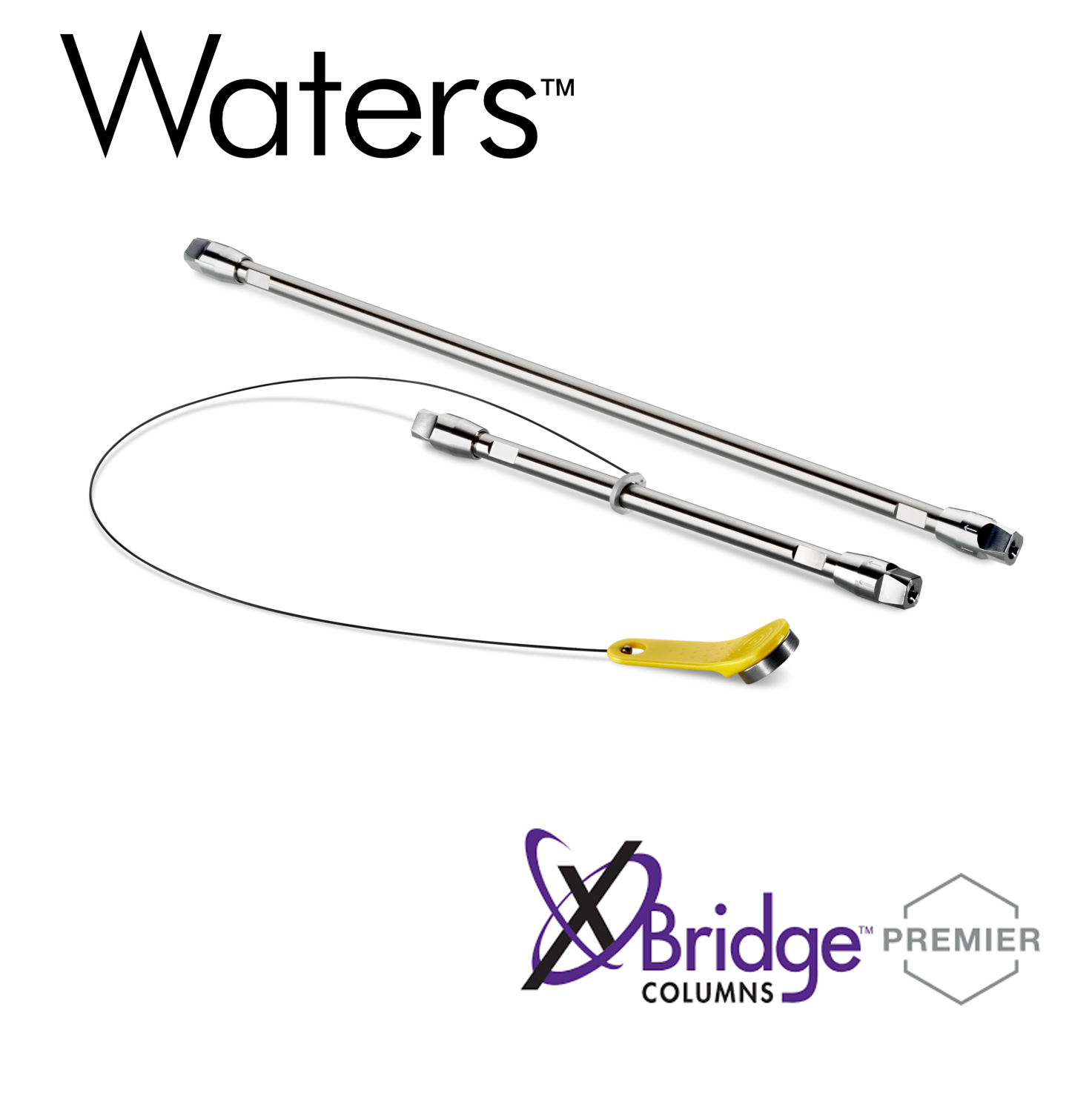Unleashing the Power of Chromatography: A Comprehensive Guide to Essential Consumables and Solutions

Introduction

In the dynamic realm of analytical chemistry, chromatography techniques have emerged as indispensable tools for separating, identifying, and quantifying intricate mixtures. From pharmaceutical analysis and environmental monitoring to proteomics and metabolomics research, the accuracy and reproducibility of chromatography results are paramount. To achieve this, selecting the right chromatography consumables and solutions is a critical decision that can profoundly impact the success of your laboratory workflows.
This comprehensive guide delves into the essential features to prioritize when evaluating chromatography consumables and solutions, empowering you to make informed choices that drive precision, efficiency, and reliable outcomes. By understanding these key attributes, you can confidently navigate the complex landscape of chromatography and position your laboratory for success across diverse applications.
Precision and Accuracy: The Cornerstones of Reliable Chromatography

At the core of chromatography lies the pursuit of precise and accurate results, which are essential for reliable data interpretation and informed decision-making. When evaluating chromatography consumables and solutions, prioritizing products that offer exceptional precision and accuracy is paramount to ensuring consistent and reproducible outcomes.
High-Quality Materials: The Foundation of Precision
The quality of the materials used in the manufacturing of chromatography consumables, such as columns, vials, filters, and tubing, directly impacts the precision and accuracy of the results. Opt for products made from high-purity materials that minimize contamination and adsorption effects, ensuring accurate separation and detection.
Consumables made from inert materials like highly cross-linked polymers, deactivated silica, or specialized coatings are crucial for preventing unwanted interactions with sample components. These materials minimize adsorption, peak tailing, and other undesirable effects, enabling accurate quantification and reliable identification of analytes.
Tight Manufacturing Tolerances: Consistency Across Batches
Chromatography consumables are subject to stringent manufacturing tolerances to ensure consistent performance across batches. Look for products that adhere to rigorous quality control measures, guaranteeing tight dimensional tolerances, uniform pore sizes, and consistent surface chemistries.
Precise dimensional tolerances in columns, for instance, ensure consistent flow paths and reproducible retention times, enabling reliable comparisons across analyses. Uniform pore sizes and consistent surface chemistries in solid-phase extraction (SPE) cartridges or membranes further contribute to reproducible sample preparation and separation.
Compatibility and Inertness: Preserving Sample Integrity
Compatibility and inertness are essential factors to consider when selecting chromatography consumables and solutions, as they directly impact the integrity of your samples and the reliability of your results. Failing to account for these factors can lead to undesirable interactions, compromising the accuracy and reproducibility of your analyses.
Solvent Compatibility: Preventing Leaching and Degradation
Caption: Solvent compatibility is crucial to prevent sample contamination or loss of analytes.
Alt text: Various chromatography consumables tested for solvent compatibility to prevent sample contamination or loss of analytes.
Different solvents and mobile phases can interact differently with chromatography consumables, potentially leading to leaching, degradation, or adsorption of analytes. Ensure that the consumables you choose are compatible with the solvents and mobile phases used in your specific applications.
For example, certain polymeric materials may swell or degrade when exposed to specific organic solvents, leading to potential sample contamination or loss of analytes. Consult compatibility charts provided by manufacturers or perform compatibility tests to ensure the consumables can withstand the chemical environments encountered in your workflows.
Inert Surfaces: Minimizing Unwanted Interactions
Caption: Inert surfaces minimize unwanted interactions, ensuring accurate separation and detection.
Alt text: Chromatography consumables with inert surfaces to minimize unwanted interactions and ensure accurate separation and detection.
Inert surfaces are crucial to prevent unwanted interactions between the sample components and the consumable materials. Look for consumables with deactivated or inert surfaces that minimize adsorption, peak tailing, and other undesirable effects, enabling accurate separation and detection.
Deactivated silica surfaces, for instance, reduce the risk of analyte adsorption and peak tailing, improving chromatographic resolution and quantitation accuracy. Inert polymeric surfaces, such as those found in PEEK (polyetheretherketone) tubing or fittings, minimize sample loss and ensure reliable analyte recovery.
Efficiency and Throughput: Optimizing Productivity

In today's fast-paced analytical environments, efficiency and throughput are key considerations that can significantly impact laboratory productivity and cost-effectiveness. Select chromatography consumables and solutions that optimize your workflow, enabling you to achieve faster analysis times and higher sample processing rates without compromising data quality.
High-Performance Columns: Accelerating Separations
High-performance columns with optimized particle sizes, pore geometries, and bonded phases can significantly improve separation efficiency and reduce analysis times. Invest in columns that deliver exceptional resolution, peak shapes, and reproducibility, enabling reliable and rapid separations.
Columns packed with sub-2-micron particles or core-shell particles, for instance, offer higher efficiencies and shorter analysis times compared to traditional fully porous particle columns. Advanced bonded phases, such as those designed for hydrophilic interaction liquid chromatography (HILIC) or mixed-mode separations, can enhance selectivity and resolution, reducing the need for time-consuming method development.
Scalable Solutions: Adapting to Evolving Needs
As your laboratory workload grows or new analytical challenges arise, scalable chromatography solutions become increasingly important. Consider consumables and solutions that can be easily scaled up or down to accommodate varying sample volumes and throughput requirements, ensuring flexibility and adaptability in your operations.

For example, SPE cartridges or plates available in various sizes and configurations can streamline sample preparation workflows, enabling efficient processing of large sample batches or scaling down for precious or limited samples. Similarly, chromatography columns with different dimensions can be selected based on sample volume and desired throughput, optimizing both resolution and analysis times.
Robustness and Durability: Withstanding the Rigors of the Laboratory

Chromatography consumables and solutions must be robust and durable to withstand the rigors of laboratory environments and ensure consistent performance over extended periods of use. Investing in high-quality, durable products can minimize downtime, reduce maintenance costs, and enhance the overall reliability of your analytical workflows.
Chemical Resistance: Withstanding Harsh Environments
Many chromatography applications involve the use of harsh solvents, acids, bases, or other aggressive chemicals. Ensure that the consumables you choose are resistant to these chemicals, minimizing the risk of degradation, leaching, or contamination.
Consumables made from chemically resistant materials, such as certain fluoropolymers (e.g., PTFE, PFA) or specialized glass, can withstand exposure to strong acids, bases, and organic solvents, maintaining their integrity and preventing potential sample contamination or instrument damage.
Physical Durability: Withstanding Mechanical Stresses
Chromatography consumables should be physically durable, able to withstand the pressures, temperatures, and mechanical stresses encountered during routine use. Look for products designed with high-quality materials and robust construction to minimize breakage, leaks, or premature failure.
High-pressure-rated columns, fittings, and tubing are essential for reliable performance in ultra-high-performance liquid chromatography (UHPLC) or other high-pressure applications. Similarly, consumables designed to withstand extreme temperatures, such as those used in gas chromatography (GC) or high-temperature liquid chromatography (HTLC), ensure consistent performance and longevity in demanding environments.
User-Friendly Design: Enhancing Efficiency and Usability
In addition to performance considerations, user-friendly design features can significantly improve the overall laboratory experience and enhance productivity. Look for consumables and solutions that prioritize ergonomics, intuitive handling, and seamless integration with existing infrastructure.

Ergonomic Handling
Chromatography consumables that are ergonomically designed, with features like easy-grip surfaces and intuitive labeling, can reduce user fatigue and minimize the risk of errors during handling and preparation. Well-designed consumables not only improve comfort but also promote efficient workflows by reducing the physical strain associated with repetitive tasks.
For example, vials or sample holders with textured surfaces or contoured shapes can provide a secure grip, reducing the likelihood of drops or spills. Clear and organized labeling systems on consumables can streamline identification and tracking, minimizing the potential for mix-ups or mistakes.
Seamless Integration
Compatibility with your existing chromatography instrumentation and software is essential for seamless integration and efficient workflow. Look for consumables and solutions that are designed to work seamlessly with your laboratory's infrastructure, minimizing the need for additional adapters or modifications.
Consumables that are compatible with your specific instrument models can be easily integrated into existing systems, reducing setup time and minimizing the risk of potential compatibility issues. Additionally, solutions that interface seamlessly with data acquisition and analysis software can streamline data processing and reporting, saving valuable time and resources.
H2: Supplier Reliability and Support: Partnering for Success
Beyond the consumables and solutions themselves, the reliability and support offered by the supplier play a crucial role in ensuring successful chromatography operations. Partnering with a trusted supplier can provide invaluable advantages, from consistent quality and availability to access to technical expertise and ongoing support.
H3: Consistent Quality and Availability
Partner with suppliers that have a proven track record of consistent quality and reliable supply chains. Ensure that the consumables and solutions you rely on are readily available, minimizing the risk of disruptions or delays in your laboratory workflows.
Consistent quality is essential for reproducible results and reliable data interpretation. Reputable suppliers employ rigorous quality control measures, ensuring that each batch of consumables meets stringent specifications and performance criteria. This consistency translates into improved confidence in your analytical results and enhanced productivity.
Furthermore, reliable availability of consumables and solutions is critical to maintaining uninterrupted laboratory operations. Suppliers with robust supply chains and efficient distribution networks can ensure timely delivery of the products you need, reducing the risk of stockouts or delays that could potentially disrupt your workflows.
H3: Technical Expertise and Support
Chromatography can be complex, with numerous variables and potential challenges to navigate. Having access to knowledgeable technical support can be invaluable in optimizing your processes and troubleshooting issues. Choose suppliers with a team of experts who can provide guidance, troubleshooting assistance, and training to help you maximize the performance of your chromatography systems.

Experienced technical support teams can offer insights into method development, column selection, and sample preparation techniques, enabling you to tailor your approach to specific analytical challenges. Additionally, they can provide valuable troubleshooting assistance, helping to identify and resolve issues related to consumable performance, instrument compatibility, or data interpretation.
Many reputable suppliers also offer comprehensive training programs, ranging from hands-on workshops to online educational resources. These training opportunities can help ensure that your laboratory personnel are up-to-date with the latest techniques and best practices, further enhancing the efficiency and accuracy of your chromatography operations.
Sustainability and Environmental Considerations
As environmental concerns continue to shape the scientific community, it has become increasingly important to consider the sustainability and eco-friendliness of the chromatography consumables and solutions you choose. Prioritizing products that minimize environmental impact can contribute to a greener laboratory while aligning with your organization's sustainability goals.
Eco-Friendly Materials and Manufacturing Processes
Look for consumables made from sustainable or recycled materials, as well as those produced using environmentally friendly manufacturing processes. Many suppliers now offer products made from biobased or biodegradable materials, reducing the reliance on non-renewable resources and minimizing waste.
Additionally, consider consumables manufactured using processes that minimize energy consumption, water usage, and greenhouse gas emissions. Suppliers that prioritize sustainable practices and adhere to environmental management systems can provide you with products that align with your commitment to a greener future.
Solvent Recycling and Waste Minimization
In addition to sustainable consumables, consider solutions that facilitate solvent recycling and waste minimization. Many chromatography applications involve the use of large volumes of solvents, which can contribute to significant waste generation and environmental impact.
Solvent recycling systems can help reduce waste and minimize the need for frequent solvent disposal, contributing to cost savings and environmental sustainability. Furthermore, consumables designed for low solvent consumption, such as miniaturized columns or microfluidic devices, can significantly reduce solvent usage and waste generation.
Cost-Effectiveness and Value
While performance, reliability, and sustainability are paramount considerations, cost-effectiveness and value for money should not be overlooked. Carefully evaluate the total cost of ownership (TCO) when selecting chromatography consumables and solutions, taking into account factors such as product lifespan, maintenance requirements, and overall efficiency gains.
Balancing Performance and Cost
Strike a balance between performance and cost by considering your specific analytical requirements and budgetary constraints. While high-end consumables may offer superior performance, they may not always be necessary for routine or less demanding applications. Conversely, opting for lower-cost alternatives without considering their impact on data quality and workflow efficiency could ultimately lead to higher long-term costs.
Reputable suppliers often offer a range of products at different price points, allowing you to select consumables and solutions that meet your performance needs while aligning with your budgetary constraints. Consult with technical experts to identify the most cost-effective solutions for your specific applications.
Total Cost of Ownership (TCO) Analysis
Conduct a thorough TCO analysis to evaluate the long-term costs associated with various chromatography consumables and solutions. Consider factors such as product lifespan, replacement frequency, maintenance requirements, and potential downtime costs.
For example, while a particular consumable may have a higher upfront cost, its extended lifespan, lower maintenance needs, and increased efficiency could result in significant cost savings over time. Additionally, consumables that minimize sample loss or reduce the need for repeat analyses can contribute to cost savings by maximizing productivity and minimizing waste.
By considering the TCO, you can make informed decisions that balance performance, reliability, and cost-effectiveness, ensuring the most efficient allocation of your laboratory's resources.
Conclusion
In the ever-evolving field of chromatography, selecting the right consumables and solutions is paramount to achieving reliable, accurate, and efficient results. By prioritizing features such as precision, accuracy, compatibility, inertness, efficiency, robustness, user-friendliness, supplier reliability, sustainability, and cost-effectiveness, you can ensure that your laboratory operations are equipped with the essential tools to drive success across diverse applications.
At IT Tech, we understand the critical role that chromatography plays in various industries, from pharmaceuticals and biotechnology to environmental analysis and food safety. Our comprehensive range of chromatography consumables and solutions is meticulously designed to meet the highest standards of quality, performance, and reliability, while also prioritizing sustainability and environmental responsibility.
Whether you require high-performance columns, robust vials, cutting-edge mobile phases, or complete chromatography systems, our team of experts is dedicated to providing you with the solutions you need to achieve your analytical goals. With our unwavering commitment to customer support and technical expertise, we strive to be your trusted partner in chromatography, guiding you every step of the way.
Take the first step towards optimizing your chromatography workflows by submitting an inquiry to IT Tech today. Our knowledgeable representatives are ready to assist you in selecting the ideal consumables and solutions tailored to your specific needs, ensuring you can confidently tackle even the most complex analytical challenges while contributing to a more sustainable future.
Products You may Like
Check out other IT- Tech product that suit your taste
Subscribe to our newsletter
Stay updated with IT-Tech Insights
Related posts
Check out other IT- Tech Scientific Resources

Common challenges in chromatography
Retention problems are a common challenge in chromatography, particularly when working with compounds that are not retentive on traditional reverse-phase (RP) columns.

Selecting CRMs for your analytical method
Selecting the right CRMs (Certified Reference Materials) is a critical step in establishing a robust analytical method. This article provides insights into key factors to consider when choosing CRMs, including purity, traceability, and suitability for your specific application. Understanding the role of CRMs in quality control and method validation is essential for achieving accurate and reliable results. We discuss the importance of selecting CRMs from reputable suppliers who adhere to strict quality standards and provide comprehensive documentation. By carefully considering these factors, you can ensure that your chosen CRMs meet your specific needs and contribute to the overall success of your analytical workflow.

Multi-component standard mixes vs single standards
When conducting research, accurate calibration and validation are crucial. This often involves using chemical standards or certified reference materials (CRMs). Two common approaches are multi-component standard mixes and single standards. Multi-component mixes offer convenience and cost-effectiveness, while single standards provide greater flexibility and control. This article delves into the advantages and disadvantages of each approach, helping you determine the best option for your specific research needs. We discuss factors such as accuracy, traceability, and cost, providing insights to ensure reliable and accurate results in your experiments.










































































